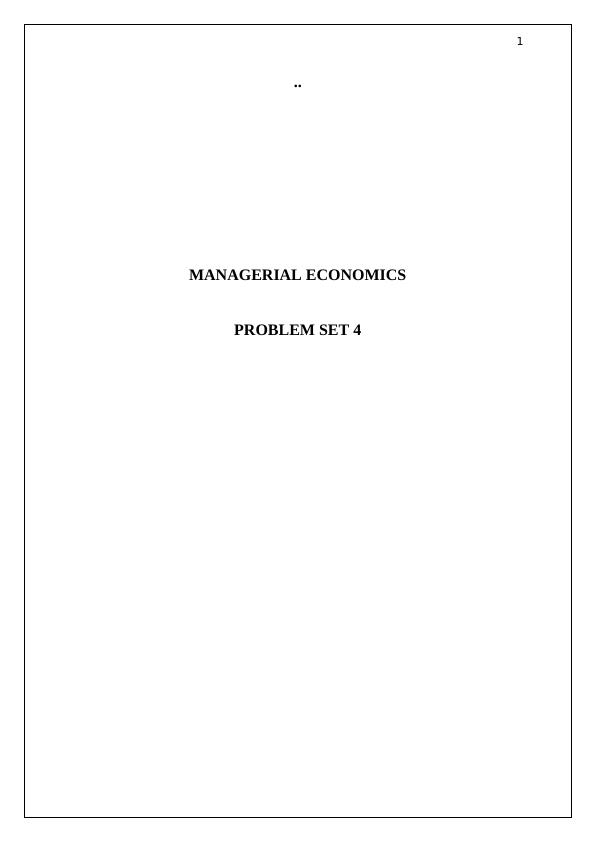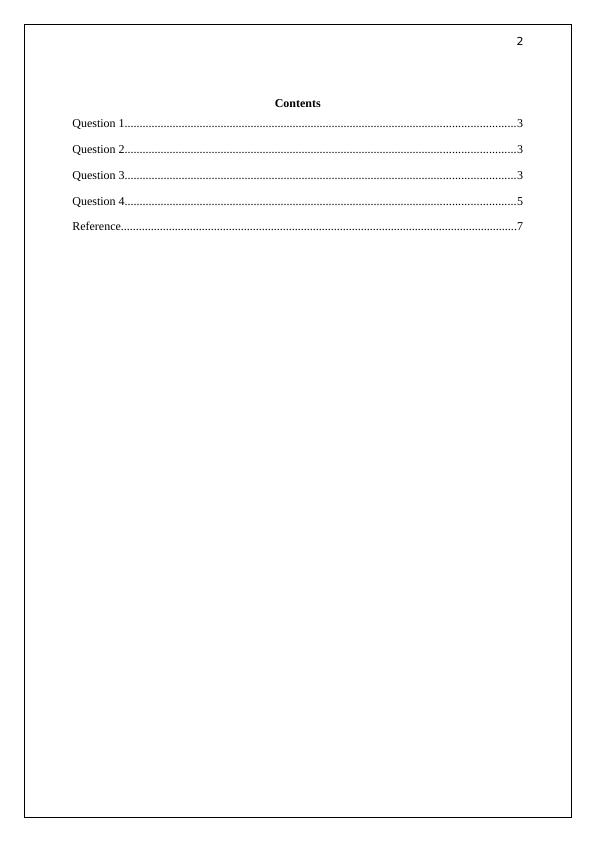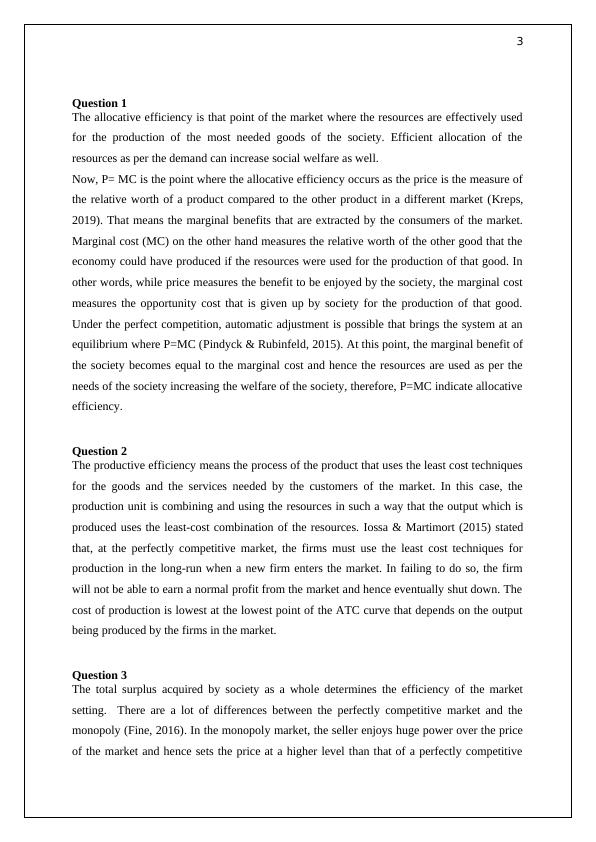Managerial Economics: Allocative and Productive Efficiency, Monopoly vs Perfect Competition, Affirmative Action
Added on 2022-10-19
7 Pages1780 Words482 Views
End of preview
Want to access all the pages? Upload your documents or become a member.
Microeconomic Principles
|13
|1955
|1
Microeconomics 101: Economics Essay
|11
|2800
|195
Economics Assignment Productive Efficiency
|8
|1041
|93
Productive and Allocative Efficiency in Perfect Competitive Firm
|13
|2195
|198
(PDF) Business and Economics Researches
|11
|1981
|107
Economics Principle And Decision | Assessment
|5
|715
|61



